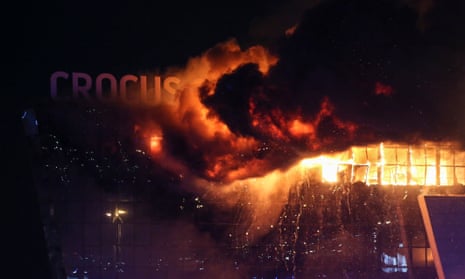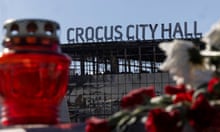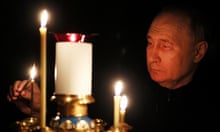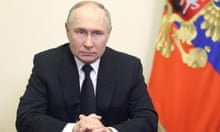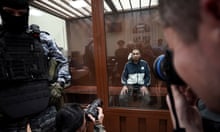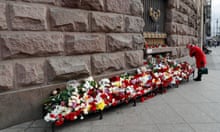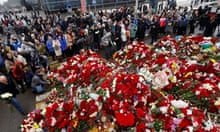Speculation about who carried out the shooting at the Crocus City Hall in Moscow has quickly indicated that the terror attack will have outsized political implications in Russia and abroad.
A claim has surfaced that the attack was carried out by Islamic State Khorasan Province (ISKP) a regional affiliate of the IS terrorist organisation. IS has been implicated in some of Russia’s largest recent terror attacks, including the 2017 bombing in the St Petersburg metro that killed 15 and injured 45.
US intelligence told American news agencies that there’s “no reason to doubt” the IS claims of responsibility.
The group, which is a branch of IS mainly based in Afghanistan, has increasingly focused its attention on Russia since the United States left Afghanistan in 2021. The group was formed in 2015 by members of militant groups, including those from Pakistan and Uzbekistan, and is active in central Asia and Russia. It carried out twin bombings in January in Iran that killed nearly 100 people.
“Isis-K and its allies retain a safe haven in Afghanistan, and they continue to develop their networks in and out of the country,” said Gen Michael Kurilla, the commander of US Central Command, during testimony to the House armed services committee in early March.
“Their goals do not stop there. They have called for attacks globally on anyone not aligned with their extremist ideology, and Taliban efforts to suppress the group have proven insufficient.”
The attack in Iran demonstrated the group’s “resiliency and indicates that they retain the capability and will to conduct spectacular external operations”.
Russia’s FSB security service said that on 7 March it had prevented an armed attack by the group on a synagogue in the Kaluga region near Moscow.
“It was established that the militants of an international terrorist organisation are preparing an attack on the parishioners of the synagogue using firearms,” the FSB said in a statement.
Within hours, the US embassy issued an unusual warning for American citizens to avoid large gatherings and in particular concerts, repeating calls for US citizens to leave Russia. “The embassy is monitoring reports that extremists have imminent plans to target large gatherings in Moscow, to include concerts, and US citizens should be advised to avoid large gatherings over the next 48 hours,” the embassy said on its website.
CNN reporters said they had been told that “since November there has been ‘fairly specific’ intelligence that Isis-K wanted to carry out attacks in Russia … US intelligence warned Russia about it”.
Putin changed the course of the Syrian civil war by intervening in 2015, supporting President Bashar al-Assad against the opposition and Islamic State.
“Isis-K has been fixated on Russia for the past two years, frequently criticising Putin in its propaganda,” said Colin Clarke of the Soufan Center, according to Reuters.
The claim by the group will largely divert attention by Russian officials that the attack may have originated in Ukraine.
Dmitry Medvedev, the former president of Russia who now is deputy head of the security council, said that if Kyiv’s involvement in the attack on the concert hall is proved, all those involved “must be tracked down and killed without mercy, including officials of the state that committed such outrage”.
Ukrainian officials had insisted that they had no link to the attack. “Ukraine certainly has nothing to do with the shooting/explosions in the Crocus City Hall (Moscow Region, Russia). It makes no sense whatsoever,” said Mykhailo Podolyak, an adviser to the Ukrainian presidential administration.
“Ukraine has never resorted to the use of terrorist methods,” he said. “It is always pointless.”
